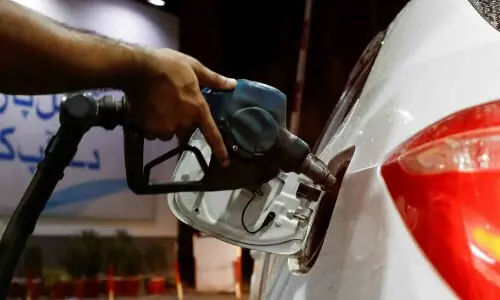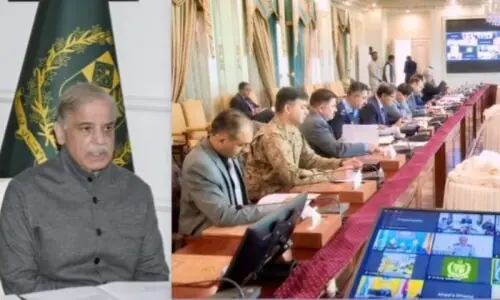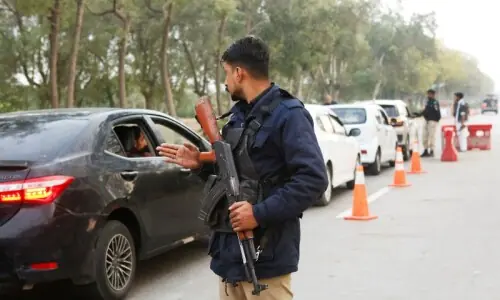IT is again that time of the year when we find ourselves speculating on whether or not Pakistani and Indian leaders will agree to a one-on-one on the sidelines of the forthcoming UN General Assembly session. This year tension on the boundaries has added greater uncertainty to this sadly routine debate — it is a reminder of the work pending to bring closer these two distant neighbours. Islamabad and New Delhi have accused each other of violating the 2003 ceasefire. On Tuesday, India said the death of five of its soldiers on the LoC will delay the much anticipated talks between top bureaucrats from the two countries. It invoked the “sanctity” of the LoC as the “most important confidence-building measure”. On its part, Pakistan’s military maintains the crisis has been created by India and it will persist so long as India wants it to.
This is an all too familiar if unyielding jumble of statements. The reality may never be allowed to emerge in the name of patriotism and national interests, with some in the media preferring jingoism to investigating the facts or the promotion of peace. Some Indian commentators have been quick to repeat their condemnation of what they call Pakistan’s aggressive intent, depending by and large on Indian military feeds. On this side of the border, a number of theories are doing the rounds seeking to explain the Indian need to challenge Pakistan militarily at this moment, again without the facts.
Fortunately, the voices which are able to see war and war-mongering as more than a game to indulge in are stronger today than ever before. These voices mark the real progress that people in both Pakistan and India have made on the path to a peaceful resolution of the problems. They bring out the futility of war, of war-mongering, and have the capacity to be heard loud and clear over the thoughtless cries for violent ‘solutions’. If jingoism is practised by some, it is worthwhile to count the number of times it has been described as such — jingoism. This is a strain that has to be augmented by the leadership. Prime Minister Nawaz Sharif’s statement committing his government to good relations with India has to be followed up by a sustained effort towards the quick de-escalation of tensions and paving the way for a return to the dialogue table. A meeting on the sidelines of the UN General Assembly session next month could go a long way in achieving this objective.




























